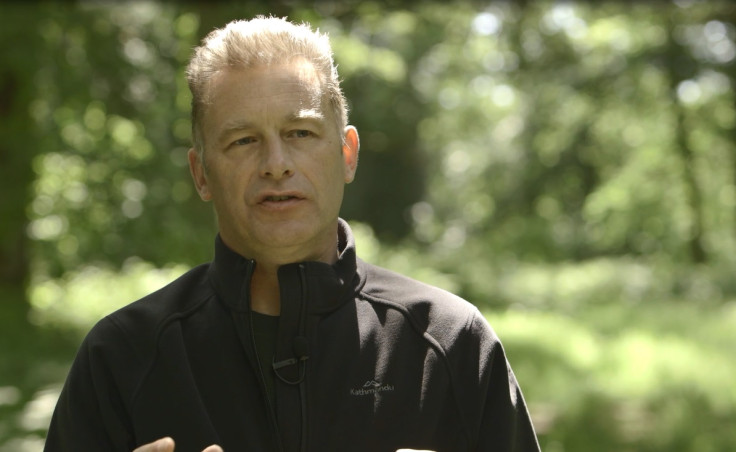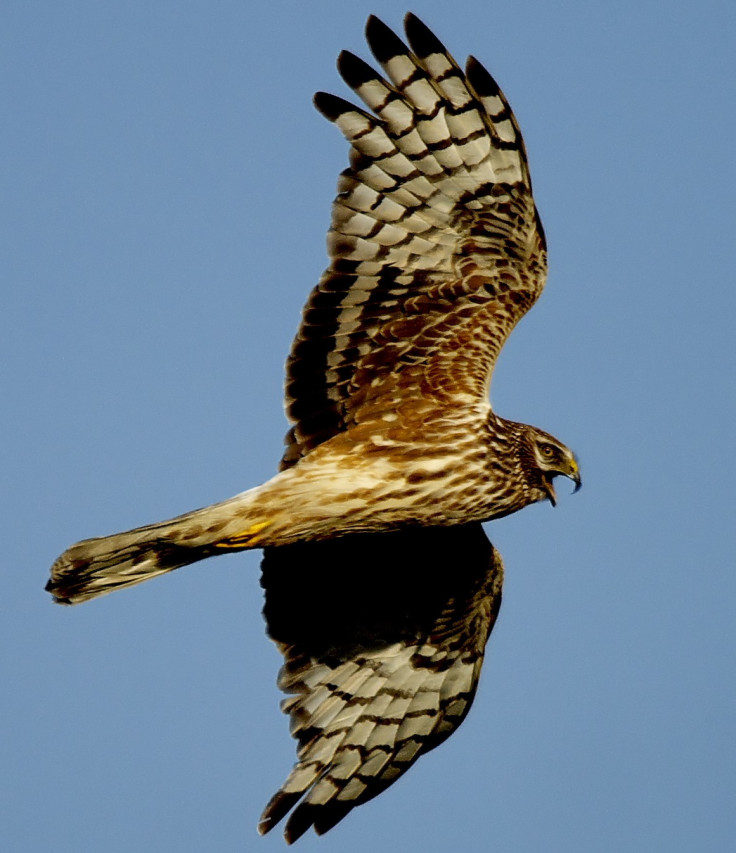Chris Packham: Paranoia about the dangerous outdoors is absurd – get over it

The paranoia about the danger the outside world poses has reached absurd levels, TV presenter and naturalist Chris Packham has said.
His comments come as research shows one in 14 people will not spend even a minute outside on the summer solstice – the longest day of the year.
Research by outdoor travel brand Kathmandu found the average person will spend just 79 minutes outside on 21 June – with a host of reasons people have for why they can't/won't/don't want to venture out.
The most popular reason was the poor British weather, seconded by work commitments and third that they cannot afford to – none of which Packham says are justifiable: "I think you can make cost a concern − there are definitely costs associated with using the outdoor environment. But then I would also say: walking is free, wildlife is free and no matter where you live in the UK, you can walk to wildlife – you can walk to it in your garden, if you're lucky enough to have one. Or your local park or nature reserve.
"It doesn't have to have a cost associated with it. I suppose you might say: 'OK you'll have to buy some proper outdoor clothing,' but then that clothing is a lot cheaper than it was a few years ago. It's a lot better quality, too. There isn't really a reason to be cold and wet in Britain even if it's windy and rainy.
"If you're saying you can't afford to, you are lacking in a certain amount of imagination. There's plenty of things to do. It's still about being outside. And we know it has tremendous benefit to us in terms of physical and mental health, and quality of life."
Fear of the wild
Another problem highlighted in the survey was that parents are very aware their children are not spending enough time outdoors – 29% expressed concern about this. Parental paranoia about the dangers of the outdoors is reaching new highs. A survey by Mothercare last year showed around half of parents do not let their children play outside as a result of concerns about their safety.
Speaking about his own experiences with his stepdaughter, Megan, the TV presenter said he never had much trouble getting her outside because he would make sure she never got bored. Now she is in China caring for wildlife and raising awareness of the Yulin dog meat festival, which sees thousands of dogs and cats butchered for meat for the summer solstice.
"I think you can be cunning with your kids and you should always leave them wanting more. I never put restrictions on touching and meeting animals and she would get bitten and scratched (not badly) and stung, and that contact, although it led to a few tears, in the long term the benefits of that engagement means she's in China looking after wildlife. Mission accomplished."
Packham describes concerns about potential dangers outside as desperate: "It's absurd," he said. "It's got to the level of appalling paranoia of the danger and the dirtiness and all of these things that the outside world presents for their kids. The outdoor world is an immense and immeasurable repository of life, which can ignite an interest that could fuel a curiosity that can last a lifetime. Why rob your children of that? It's criminal really.
"Don't believe the propaganda about it. One of the things I dislike – there are a lot of things I dislike – but what I really really dislike are signs that are given to young people that the outside world is dangerous. When I see school parties and they've all got their fluorescent jackets on. If they're crossing the road, that's fine, but when I see them in a nature reserve, it's sending a bad message to the kids.

"Then the worst thing of all − the thing I absolutely despise − is this hand gel, the antibacterial gel. My hands have touched some of the most disgusting things you can imagine and I'm still breathing. Children touch a newt and the schoolteacher is spraying them down with antibacterial.
"It's entirely the wrong message as 29% of parents said they knew their kids weren't spending enough time outdoors. They know it and they're not doing anything about it. Get over it, get them out. You never know they might end up in China looking after bears and being of great benefit to the world."
Wider message of conservation
Encouraging people to venture outdoors has another purpose. By engaging with wildlife, people become more attuned to conservation concerns and are more likely to campaign for change when they are aware of the problems facing nature.
And this message is paramount. In 2010, the UN Environment Programme estimated between 150 and 200 species become extinct every day, many of which we never even knew existed. Wildlife in the UK is facing major threats from human activities and climate change – a problem only expected to be exacerbated over coming decades.
"If people perceive they're losing part of their natural resource, they will campaign and they do campaign fiercely to protect it," Packham said, noting that since the early 1970s, 50 million birds have disappeared from the UK countryside.

"At the moment despite our ability is to measure and quantify them, what we're not doing is responding to the urgency we need to. We have the capacity to repair things, we've learned that we can rebuild habitats, we can sculpt landscapes, we can protect species, but we're not doing it and we're not doing it rapidly enough.
"I think something will happen. Sometimes we need to be woken up with a shock. Unfortunately the human is much better at cure than prevention and that saddens me but I wonder what's it going to be – will it be cuckoos? Will that trigger people to say that's enough, we've got to act. Something will happen that will grab the national zeitgeist and we'll all respond to it. But at the moment all the figures and data, terrible statistics are not getting us to respond."
For this reason Packham said he was disappointed that the robin was picked as Britain's national bird: "I don't dislike robins, but I wonder whether we can afford that choice. There are birds we could have chosen – the hen harrier for instance – if we had chosen that it would have been a tremendous asset to our ability to conserve it.
"What I wonder is could we have afforded to choose this cuddly little common bird which is doing very well, when we could have made a statement and picked something that is in desperate straits and would have focused the nation's attention on the plight of this species, leading to better conservation. People were voting with their hearts rather than their heads and I wonder if we can afford to do that in these times of crisis."
We Brits only spend an average of 79 minutes/day outdoors @Kathmandu_UK survey reveals .What a waste! Time for a walk or a bike ride Id say!
— Chris Packham (@ChrisGPackham) June 19, 2015But all is not lost, he said. Social media has provided a platform for people to engage – and engage the masses – to highlight problems and efforts being made to conserve.
"Social media is a real asset because we can communicate our dissatisfaction with the way the environment is being treated much more rapidly to a much wider audience and this gives us the ability to motivate a more powerful response to it.
"I'm invigorated by the way people are concerned and that they're motivated to communicate that concern to myself. That means we are making progress. It's much more difficult for people to 'get away with it' now. As soon as we find out we all know about it, it's empowering.
"I don't want people to be indoors – I want them to be out seeing it for themselves. Ultimately I'm going to be banging on their door and Twitter account asking them to conserve it and they'll only do that if they engage with it personally. If people perceive they're losing part of their natural resource, they will campaign and they do campaign fiercely to protect it."
© Copyright IBTimes 2025. All rights reserved.






















